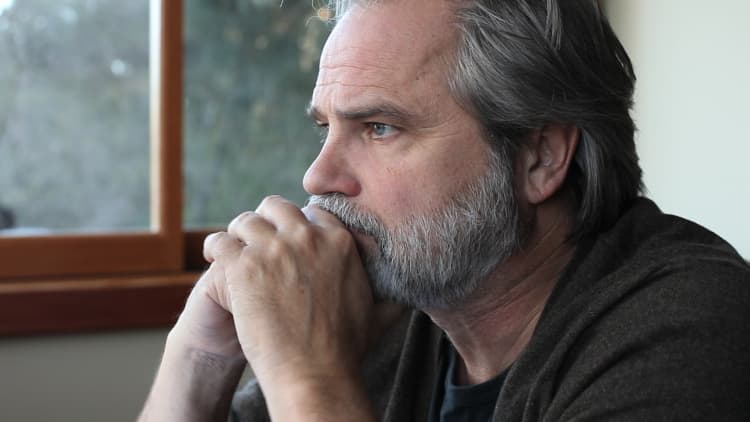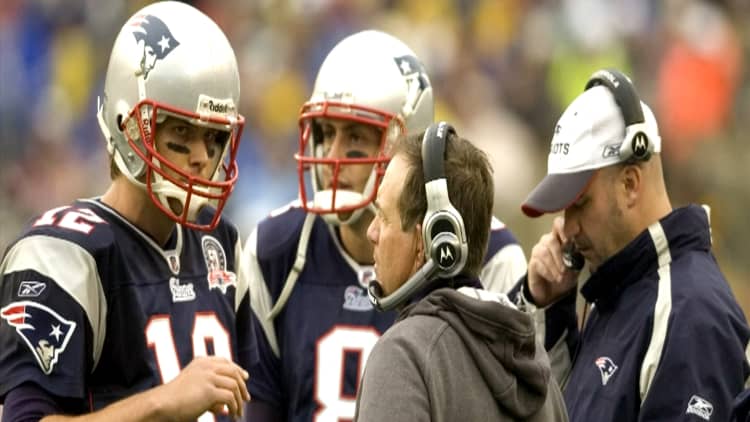Germany's TeamBank AG, which lends to consumers under the brand name "EasyCredit," has granted thousands of loans to consumers who do not fit the bank's lending criteria. Millions of euros are lent out this way every year. Why do you think they do this? Are the bank's lending officers just incompetent? Or perhaps they have a sense of civic responsibility for those less well off? Or are they adhering to some sort of regulatory requirement?
More from Don Peppers:
Four ideas for creating a more trusting, collaborative, and productive culture
Horror films, data analytics, and customer journey mapping
How to assign responsibility for the customer experience - a practical idea
Before I tell you why, let's play a little game. I'm thinking of a mathematical rule that applies to the sequence of numbers 20, 16, 12. Can you guess my rule? To play the game you can make up as many of your own sequences as you like, and for each one you make up I will tell you whether or not it fits the rule I'm thinking of. So what sequences might you suggest, to be sure you figure out my rule as quickly as possible?

The vast majority of people, when confronted with this problem, will quickly guess that my rule must be that the numbers are declining multiples of 4. (It's obvious, right?) To confirm this, they might ask whether the series 12, 8, 4 would work (yes, it fits my rule). Or what about the series 44, 40, 36? (Yes again.) It only takes three or four such questions for most people to confirm that this is in fact the rule I was thinking of – decreasing multiples of 4.
But most people would be wrong, because they are asking the wrong questions. The rule I was actually thinking of wasn't decreasing multiples of 4. I was thinking of a rule that the numbers must be any three decreasing, positive whole numbers. That's all. So yes, the sequence 12, 8, 4 works, as does 44, 40, 36. But so would 15, 14, 13. Or 150, 45, 7 for that matter. Were you to suggest any of these sequences you'd immediately find out that multiples of 4 don't play a role in my rule, so your initial hunch was wrong.
Now before you dismiss this as a trivial problem, consider the fact that there are still many, many number sequences that would not fit my rule. 12, 7.5, 6 would not fit the rule, nor would 4, 5, 6, nor 2, 0, -2.
This is a very simple lesson in the scientific method:
When a scientist has a hypothesis about something, the fastest, most reliable way to provide evidence that the hypothesis is true is to look as carefully as possible for evidence that it is false.
The philosopher of science Karl Popper, in fact, has suggested that "falsifiability" is a defining trait in any genuinely scientific hypothesis. If there is no evidence that would ever prove a theory wrong, then it can't really be considered a scientific theory at all. This is one of the differences between science and religion.

Unfortunately most people, including most business managers, aren't very good scientists. Part of the reason for this is that human beings are all saddled with certain innate biases in the way we think about things, and these biases have to be overcome before we can reason in a truly rational way. One of these biases, the "confirmation bias," predisposes us to pay closer attention to facts and stories that confirm what we already believe. We develop a theory about something, and then we search carefully for evidence that supports our theory.
There are perhaps evolutionary reasons why our brains work this way. We are a social species, for instance, and we are constantly interacting with others, often trying to persuade them to our own point of view. So whenever we have any sort of theory about how the world works, it's natural for us to search first for evidence that can be used to support our theory.
But in a technologically advanced world in which data and analytics play an ever-increasing role, businesses are finding that careful scientific reasoning is more and more important.
And now for those who haven't already guessed, the reason TeamBank grants thousands of loans every year to consumers who don't meet their lending criteria is that they are constantly testing whether their lending criteria are correct or not. Every time someone who doesn't fit the criteria turns out to be a steady and reliable borrower, the bank learns something it didn't know before, and they have expanded the market for their services.
If you, too, want to make better, more evidence-based business decisions, then here are three questions you should always ask yourself during your decision-making process:
- What facts or circumstances would move you to change your mind?
- Whenever new evidence appears to support your theory, ask how someone who doesn't agree with you would explain this evidence?
- And finally, what if the exact opposite evidence had appeared — would that change your mind, or would you still believe your theory?
Don Peppers is the bestselling author of Peppers & Rogers Group, a customer-centric management consulting firm, as well as a best-selling business author and keynote speaker.
Like this story? Like CNBC Make It on Facebook.
Don't miss: Most Americans can't answer these 5 basic money questions


